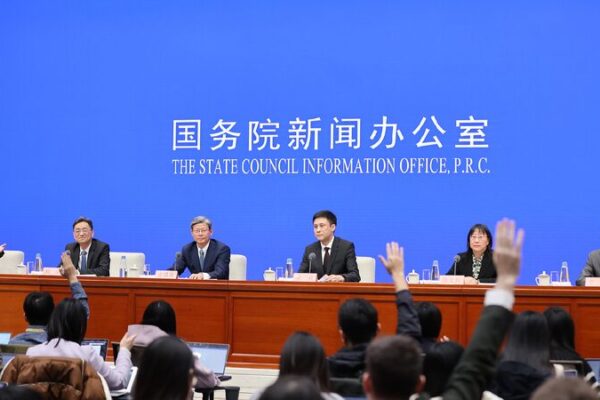China is gearing up to boost its economy in 2025 with a series of proactive macroeconomic policies aimed at increasing demand and fostering growth.
At the annual Central Economic Work Conference held in Beijing this week, leaders outlined plans to adopt more active fiscal and monetary policies, signaling a shift in economic strategy.
For the first time in 14 years, China will transition from a “moderately loose” monetary policy stance. This change includes lowering the reserve requirement ratio and interest rates when necessary to ensure adequate liquidity in the financial system.
Liu Yuanchun, president of Shanghai University of Finance and Economics, believes this shift will enhance banks’ lending capacity, reduce borrowing costs, and ensure ample liquidity in the market.
The conference also laid out comprehensive plans for fiscal measures, including increasing fiscal deficits, boosting government spending, and issuing special treasury bonds. These steps aim to deliver immediate benefits while also supporting long-term growth.
According to Shi Yinghua, a researcher at the Chinese Academy of Fiscal Sciences, these measures will enhance counter-cyclical adjustments and help mitigate external uncertainties.
Vigorously boosting consumption, improving investment efficiency, and expanding domestic demand were highlighted as key priorities for the coming year.
Luo Zhiheng, chief economist at Yuekai Securities, pointed out that the proactive fiscal policy package is expected to stimulate aggregate demand more effectively and earlier.
With a relatively low fiscal deficit ratio currently, there is greater flexibility for implementing these fiscal policies. Yang Zhiyong, director of the Chinese Academy of Fiscal Sciences, noted that raising the fiscal deficit ratio could generate more funds to drive consumption and investment, offering stronger support for sustained economic growth.
The China Finance 40 Forum suggested specific measures to achieve China’s growth target of around 5% in 2025, including raising the fiscal deficit ratio to 4%, issuing 2 trillion yuan ($275 billion) in new long-term special treasury bonds, and utilizing surplus funds.
Experts believe that these proactive policies will revitalize market confidence and set the stage for sustained economic growth in 2025, positioning China for a robust economic future.
Reference(s):
China's proactive macro policies will boost demand and growth in 2025
cgtn.com








